Stroud Film Festival 2024 — Black Dog Way (interview with director Sam Pope)
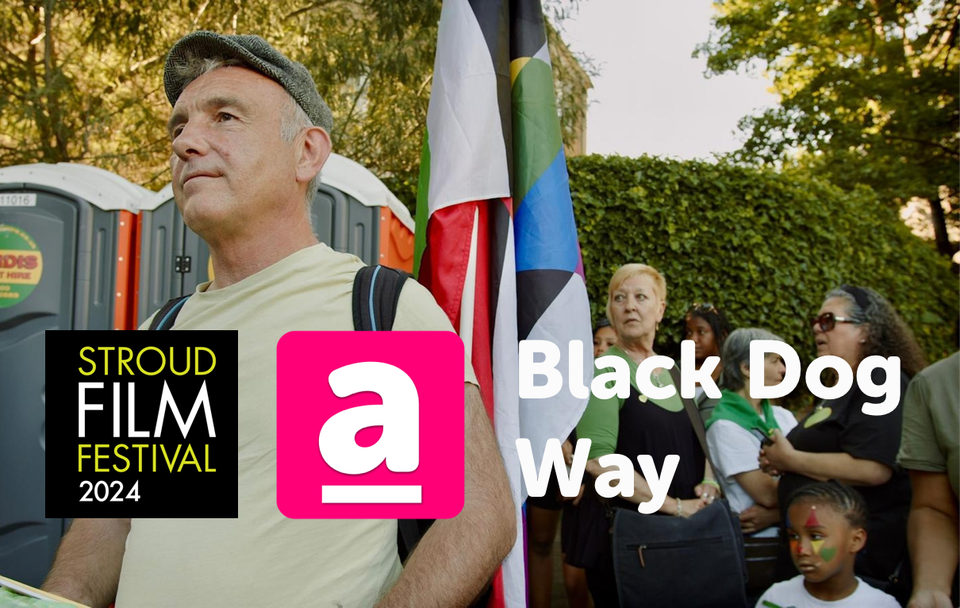
Robin Layfield interviews Sam Pope
AHEAD OF THE SCREENING OF Black Dog Way at Stroud Film Festival on Wednesday 6 March at The Trinity Rooms from 7.30pm, Sam Pope discusses the origins and the formative process behind the film and why he loves the documentary format so much.
I'm a film-maker, I was born in Cheltenham and I went to art school in Stroud. I was at Stroud Art College 2005—2006. I absolutely loved it, I discovered photography and started experimenting with film, illustration and animation. These were my formative years and I went on to study in Liverpool and Manchester.
Documentary film-making was the one particular art form that I gravitated towards because you didn't need a massive budget, you didn't need to have the best equipment, you didn't need a screenwriter, actors all the rest of it, you could get away with pulling together something really really fascinating but without having to have a billion dollar budget.
In the early days was quite "seat-of-the-pants" and a little bit scary because you would have no idea what the film is about — you'd have to discover it in the edit. In some ways, it's still the same, with Steve's film, me and Katherine are thinking: "We don't know what it looks like, we don't know what creature it's going to be. We haven't shown it to Steve [Gower] yet, he will be seeing it for the very first time on Wednesday night.
This film is the distillation of four years of life. We've had to cram a hell of a lot into 1 hour and 45 minutes and there's a lot on the cutting room floor.
Exactly. The trickiest bit about it is working out what is essential. That's the trick. The really good thing about having a good editor, when it comes to documentaries, your editor — Katherine's like another director — and it is really difficult. For two and a bit years I'd be going solo, doing pretty much everything by myself - setting up all the interviews, working with Steve to actually interview all the people he'd advocated for.

I took Steve on as Executive Producer, I said to him: "This is your story, we're telling people about your personal experience of what it was like to become homeless and go through the support system and be chewed out and spat out the other end. But what I think is more valuable now, is not only your experience but everything you've done with your advocating work."
We made an unwritten rule in 2019: I knew that I had to tell Steve's story, which is why we used my friend Paul Daly, who's an incredible film-maker and he films on 16mm, so it's all analogue, no digital - and he made this beautiful film called Mirrors which was selected for the Sheffield Documentary Festival - it's an absolutely beautiful film, it's like a working-class Koyaanisqatsi.
I asked Paul to come down to Gloucester and film Steve, just to do some reconstruction at the Dorchester, which is the HMO (House in Multiple Occupation) that he found himself in. When we went back to film in 2019, there had been so many deaths - 6 or 7 in a very short space of time that the place had been shut down and it was just an empty shell.
We went back and filmed a sequence outside of it. We got Steve to dig out his old bicycle and put on the set of clothes he was wearing when he walked from the Forest of Dean to Gloucester on that February morning and we even filmed a little sequence in the corner cafe that he used to sit in as well - and Paul did such a beautiful job.
Kathering Glenn-Jones is fantastic. I met her and her partner about two years ago - we met through a mutual friend. So Katherine did Fine Art & Film-making and her partner is Tom Crawford. They work together - Katherine does all the editing: images, story, the rest of it and Tom is incredibly dependable and practical. He'll do pretty much anything, so builds websites, he's a musician and a very talented guitarist and can turn his hand to anything. So if for some reason the external hard-drive on my BlackMagic camera suddenly stopped working, he can write the code on his Mac to extract the files and information for me. He's been a lifesaver.
I'm very good at doing interviews and finding people and networking and all the rest of it but when it comes to making websites, doing code, well I can do it but under duress - I get very easily distracted by most things. Tom's been fantastic.
I went through quite a few different editors over the last few years, trying to find someone that was brave enough to take on the edit. I knew that what I was handing over was a lot - and it was quite a few hard drives. I was very consciously aware of the fact that whoever was going to tackle it was probably going to need some guts really because it's not an easy task and you're going to have to go through hours and hours and hours of footage to condense it down to one hour and forty minutes.
It is very different from feature films for example because the edit is the most crucial part of it. All the hard work over the last four years of me running round with a camera trying to capture everything, that's the easy bit. The real hard work, making the film, is in the editing room.
The way I described it to Katherine is that the material will dictate the story. Because I've been so in the thick of it for so long, I shouldn't be the person to edit it - I should be a million miles away from it. If I edited it, it would be a mess because I wouldn't be able to let any of it go.
It's nice to have a limited, small, intimate team because you can get back to the really simplistic thing of: you're not making it for anyone else, all you're doing is making it for yourself. You get to a point where you just let go and let the film be what it's going to be. You've got to make the most honest, the most truthful thing you can. If other people like it, brilliant, if other people don't, well fair enough. But there will always be an audience for it and you have trust that if you've made it with the right intentions, people will want see it.
I'll be stood at the back of the room on Wednesday 6 and I'll be critiquing it and editing it in my head again: "we held that shot for 2 seconds too long, we need to cut that" and I know Katherine will be doing the same - and we'll probably end up going back to the edit with that.
For the 6 March, we needed a deadline, it had to be Stroud and Derrick - Derrick McLean has been lovely. He's been nudging us for ages, going "that documentary, is it sorted yet? Are you going to screen it any time soon? Have you thought about this year? You can get it done by March can't you?"
Andy, Derrick and Kat have been wonderful, they've taken a chance because they haven't seen the complete film yet.
My friend Dean Jones is a very talented composer. We've always wanted to set up our own production company and we've always wanted to make films together. Dean's just finished his first album - a big, big, eleven track album and I'm trying to finish my first feature film and we're both in our mid-30s and we want to get this done before we hit 40. We want to make a piece of art and if we don't make another piece of art then so be it but we have to make this one.
We can tell our kids that once upon a time we had ambition and dreams!
I'd love to get to the point where we've got enough money behind us, me and Dean and we could write, we could shoot a documentary about whatever we want and I've got Dean to write the soundtrack. That would be my dream, me and Dean making films together - a bit like Hans Zimmer and Denis Villeneuve.
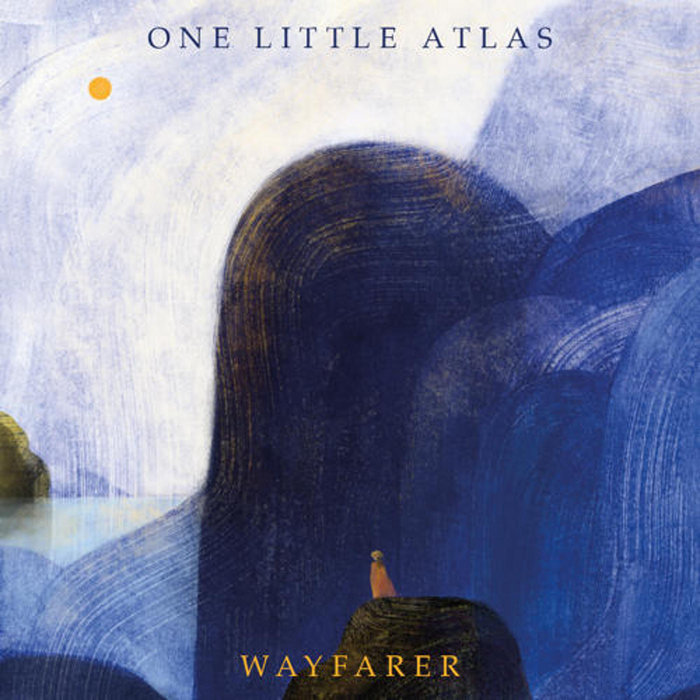
The music that he's been writing for this film is absolutely beautiful and we had enough money in the budget for me to be able to pay him to do it, whereas other films we've had to make everything on a shoestring.
The first act of the film is the reconstruction and Steve's talking about his story. We don't go into too much detail about why he became homeless.
What Steve tried to get across in the first set of interviews we did with him in 2019, was the same - he had a naive assumption that all the old safety nets were still there.
You expect this - because you've paid into a system that's been there since time immemorial and then suddenly you realise that all the safety nets - they don't quite look as secure and they've got big holes in them and you are doing the High Wire Act and thinking "if I do fall off this what am I going to land on?" — it's worrying, it's very worrying.
I hadn't made a film in a very long time when I moved back to Gloucestershire and I was rapidly approaching my mid-30s. I became involved with the fillm Stroud's Secret Suffragist that River Driver Sharp was making. It's such a beautiful, sweet film and it's River's baby.
I helped with the edit and I got the bug from that. I said to River, if I can come up with a good idea would you help me make it?

We had the screening and funnily enough Steve was in the audience. Gemma Jerome had met him at a Co-operative Party Conference and he basically handed her a sort of "back of the fag packet" four step plan of how he thought the support system for homeless people could be improved, taking bits and pieces from the Finnish model, taking other ideas from other places and stuff. The business plan was amazing and I asked Gemma to introduce me to him.
I'd already constructed the film in my head, just from the story and the way that Gemma described it to me. When I met him, he had the cloth cap, the jacket, he had the white shirt, the rollup. He was this kind of scruffy Welsh guy with a little beard and I thought, "OK. I'm going to see where this goes."
So we did an initial interview that lasted about three hours. So me and River set up four cameras. We found a studio in Stroud and we just let the cameras roll. What I wanted to know was "is there enough for a feature?"
The amount of material and the number of different directions and possibilities meant we had something we could really work with.
There's a lot of confidence. I think what had happened to him had broken him in many ways but in the same time it had kind of galvanised him. That sounds like a really strange contradiction doesn't it but it's almost like the metal was broken and then it was reformed in the furnace. It left him almost blinkered with determination.
He was knocking on Gloucestershire County Council's door, every week, going in to council meetings just asking questions, asking questions again and again and again. Really basic routine things like "Why don't you have any figures for the numbers of people dying in supported living?" He just kept asking questions, questions, questions, through all these Freedom of Information requests and if he didn't get an answer he liked, he'd go back the next week and ask another question and another.
The most frustrating thing about the last couple of years was COVID - it put the brakes on the film. I didn't get the chance to see River for quite a long time and we almost felt like the film had stalled because we filmed all this stuff in 2019 - hours of stuff. We basically made the film in 2019 but because of my day job, I couldn't really go over to see Steve and I had to be really careful. I couldn't really go into work and I was all masked up and wearing gowns for pretty much most of the lockdown, so there's this big hole in the middle of the film where COVID is.
Being a film-maker, you are a problem-solver, you always have to problem solve and the best kind of mindset you can have is that any problem and any situation, whatever is thrown at you, you just lean into the difficulty and the problem.
You go "all right, we haven't got access. We can't speak to the Council, we can't speak to a Housing Officer, we can't get hold of this footage, no-one will speak to us, other people won't speak to us, we can't the funding, you just go, OK, well this is our film then. We're going to film people out in the street and we're not going to include all the charities and all these other different people, and all these voices and academic voices, we're going to center it on the people on the street. And we're going to talk directly about their personal experience and have it as almost as an anthology of interviews, where Steve is revisiting and going back to the people that he helped."
My initial frustration around it was that it needed to be verité, it needed to be real, it couldn't be staged, we needed to go and find it all. We had so many problems with access and so many ethical concerns, where we thought that we can't actually interview these people. They had given us their consent, they had signed a piece of paper and me and Steve were looking at each other going "we shouldn't have them on camera because their situation is still live and it's still pretty delicate."
There's an interview of a chap that we interviewed and two weeks later he was dead and that hasn't made the cut. We decided not to include that one. It was probably the last two weeks of his life and the problem that we had was trying to get hold of his relatives and get their permission.
It was difficult because everyone we interviewed, we had to decide are they in a position of power? Do they have self-respect? Are they too vulnerable? Or are they in the position where they are stood on their own two feet, they are not at a disadvantage and it's not about us, it's not exploitative, it's not ego-driven. They are on their feet, they are confident, they are telling their story for themselves.
A few of the participants might not be quite happy with everything that's in the film and you have to make a compelling argument that if we take it out, it diminishes it and if we keep it in it adds to the film but trust us, wait till the premiere and you'll see what we've seen. What we see is something quite profound and you've managed to articulate something that none of us have been able to do.
I hope we have done them justice. There are probably other films out there, similar to what we're doing: Someone's Daughter, Someone's Son is a recent homeless documentary.
The third act which is the end of the film, we wanted this to be the hope and Steve has been promoting this recently. This offers a tangible solution to break the cycle of homelessness. It's about putting people's health and wellbeing, values, purpose back into the process.
What Steve talks about is so simple and so basic, you're left thinking "why the fuck isn't anyone else doing this?"
Black Dog Way is screening at the Trinity Rooms on Wednesday 6 March from 7.30pm. There will be a Q&A with Sam Pope (director) and Steve Gower

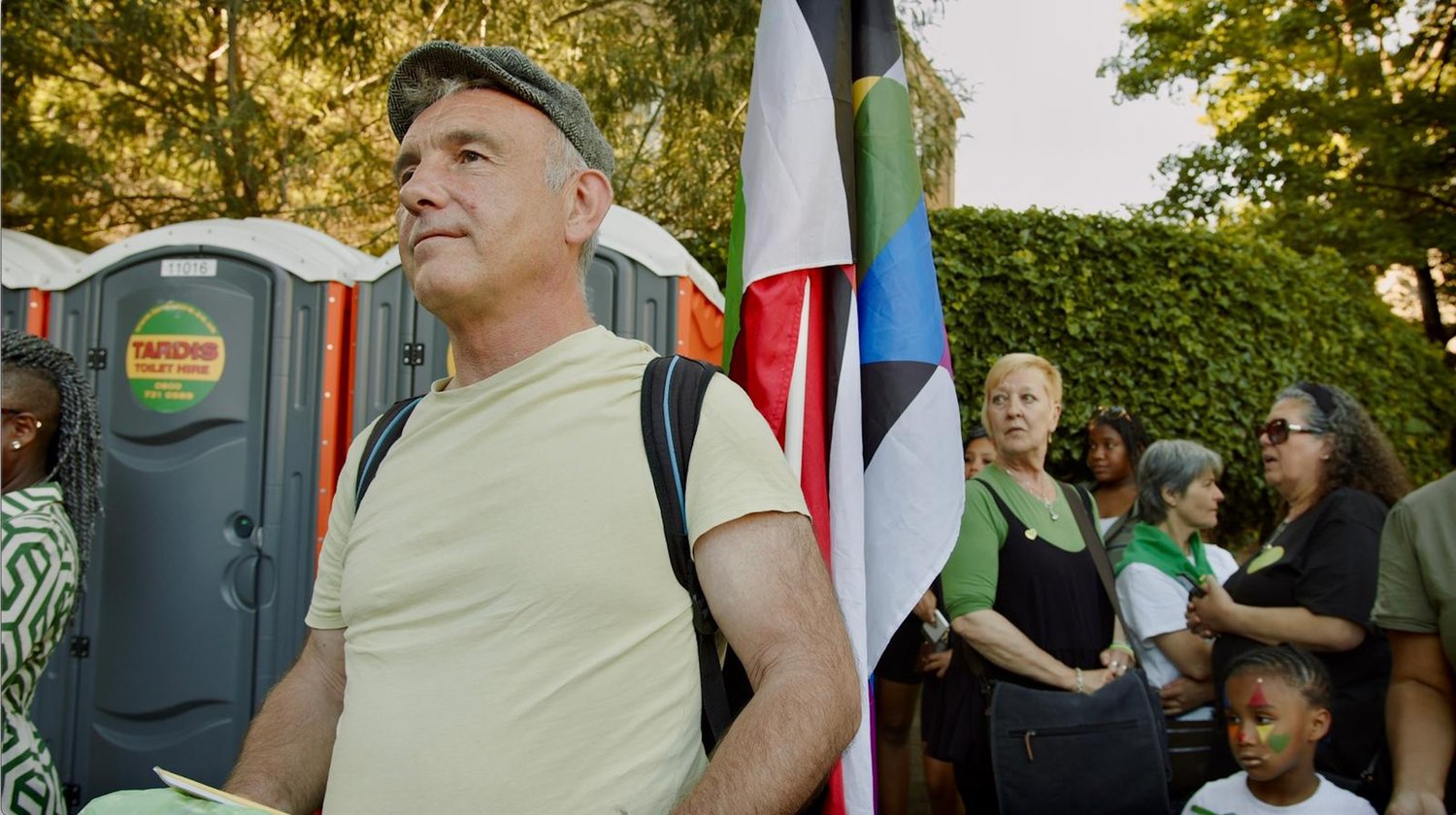




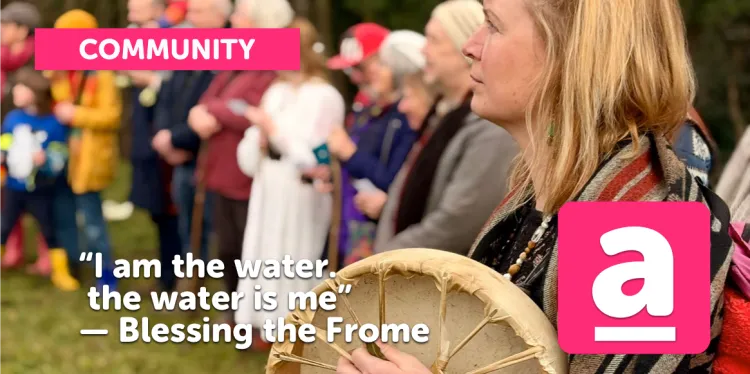
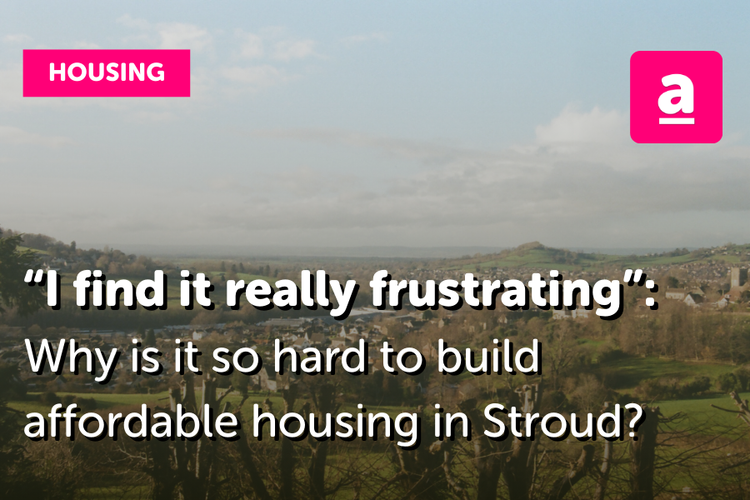
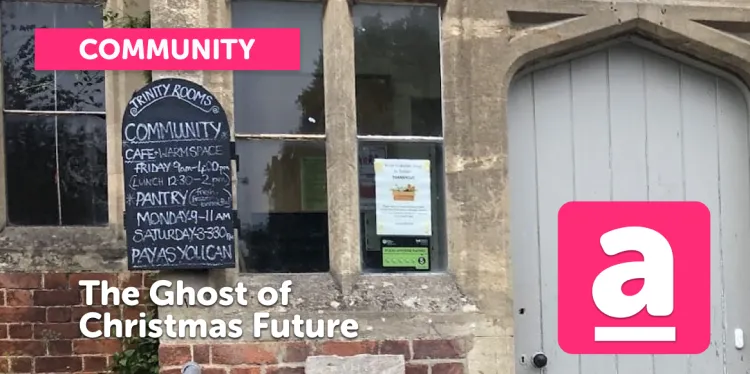
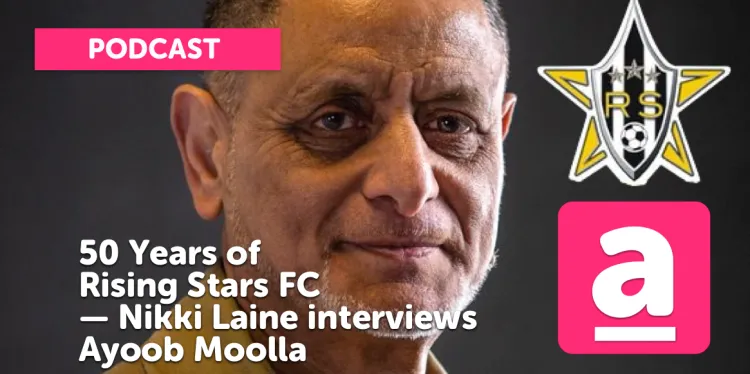
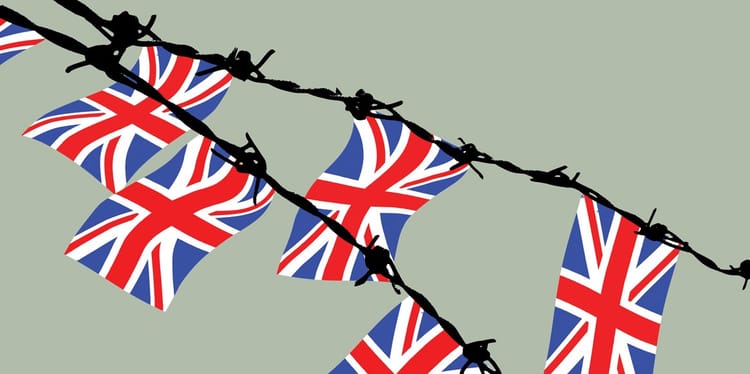
Member discussion